- News
- Reviews
- Bikes
- Accessories
- Accessories - misc
- Computer mounts
- Bags
- Bar ends
- Bike bags & cases
- Bottle cages
- Bottles
- Cameras
- Car racks
- Child seats
- Computers
- Glasses
- GPS units
- Helmets
- Lights - front
- Lights - rear
- Lights - sets
- Locks
- Mirrors
- Mudguards
- Racks
- Pumps & CO2 inflators
- Puncture kits
- Reflectives
- Smart watches
- Stands and racks
- Trailers
- Clothing
- Components
- Bar tape & grips
- Bottom brackets
- Brake & gear cables
- Brake & STI levers
- Brake pads & spares
- Brakes
- Cassettes & freewheels
- Chains
- Chainsets & chainrings
- Derailleurs - front
- Derailleurs - rear
- Forks
- Gear levers & shifters
- Groupsets
- Handlebars & extensions
- Headsets
- Hubs
- Inner tubes
- Pedals
- Quick releases & skewers
- Saddles
- Seatposts
- Stems
- Wheels
- Tyres
- Health, fitness and nutrition
- Tools and workshop
- Miscellaneous
- Tubeless valves
- Buyers Guides
- Features
- Forum
- Recommends
- Podcast
review
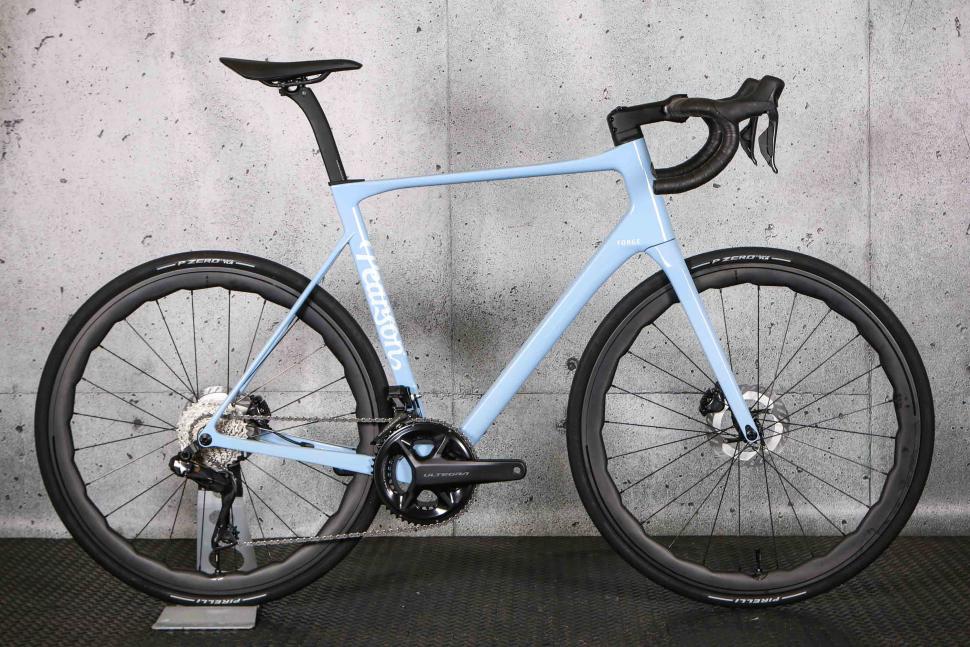 2024 Pearson Forge - 1.jpg
2024 Pearson Forge - 1.jpg£6,199.00
VERDICT:
Fast and reactive road bike in a regular-rider-focused geometry
Geometry designed for everyday riders
Quick and punchy
Subtle mudguard mounts
You need to get to Pearson’s shop to take advantage of the free bike fit
Weight:
7,690g
Contact:
At road.cc every product is thoroughly tested for as long as it takes to get a proper insight into how well it works. Our reviewers are experienced cyclists that we trust to be objective. While we strive to ensure that opinions expressed are backed up by facts, reviews are by their nature an informed opinion, not a definitive verdict. We don't intentionally try to break anything (except locks) but we do try to look for weak points in any design. The overall score is not just an average of the other scores: it reflects both a product's function and value – with value determined by how a product compares with items of similar spec, quality, and price.
What the road.cc scores meanGood scores are more common than bad, because fortunately good products are more common than bad.
- Exceptional
- Excellent
- Very Good
- Good
- Quite good
- Average
- Not so good
- Poor
- Bad
- Appalling
The Pearson Forge is a do-it-all performance road bike with a geometry suited to riders with a normal level of flexibility. It's quick and punchy, and Pearson's laser focus on fit means you can ride it comfortably for hours at a time.
> Buy now: Pearson Forge for £6,199 from Pearson Cycles
Don't call the Forge an endurance bike. Pearson is very insistent on this. What it is, according to the London-based brand, is 'the most data-driven piece of bike design ever created', and that's a huge part of its story. In fact, Pearson's belief that most road bikes are built to geometries that don't suit the majority of riders is the whole reason for the Forge's existence. It has developed a new O-Series geometry that generally results in a shorter reach than normal and a taller front end, but we'll come back to that in detail in a mo. First, how does it ride?
Pearson Forge: Ride
Talk of adjusted geometry and a higher front end does make the Forge sound a lot like an endurance bike, but that's far from the full picture. The Forge is hard to categorise because it has a foot in different camps. Yes, the front end is a touch higher and closer to you than on most other road bikes, but it still feels extremely performance minded.
For a start, it's pretty light. Our complete bike hit the road.cc Scales of Truth at 7.69kg and Pearson claims a size 3 (equivalent to a medium from many other brands) frame weight of 890g. Let's not get too caught up in talk of the weight, though.
Out on the road, the Forge feels nimble and reactive. It climbs beautifully whether you're in the saddle or standing up on the pedals, and you're rewarded with a surge of speed when you dig deep.
> Buyer’s Guide: Best road bikes 2024
Some taller bikes can feel flexy up front when you get out of the saddle and chuck them about, but that's not at all the case here. Everything is taut when you haul on the handlebar and the steering is precise when you're throwing yourself into tight bends, giving you the confidence to take things just a little bit quicker next time. You certainly don't feel that performance has been compromised for comfort here. Not even slightly.
It's when you're on flat or rolling terrain that the Forge really comes into its own. Unlike a lot of bikes, it allows you to get down on the drops and hold that position comfortably for long periods without any nagging back or neck aches. You might well find yourself using the drops more than usual, and the Forge has a calm assurance about it as it efficiently eats up the miles, but it's still bang up for a town sign sprint at the end of it, feeling fast and punchy with tons of stiffness around the bottom bracket.
It's an unusual mix, then. If you want to sum it up, the Forge behaves like a sleek, thoroughbred race bike, but built to a slightly more relaxed geometry.
Pearson Forge: Geometry
About that geometry, then... It might not be the most exciting topic in cycling – it's not why you got into riding, is it? – but the geometry is vital to your comfort, efficiency and control when you're on the bike, and it's at the heart of Pearson's Forge concept and design. I'm not here to act on behalf of Pearson's marketing department, but let me explain the idea.
Based in East Sheen, London, Pearson has been around since the dawn of time. Well, it has been building bikes since 1860 – it's the oldest bicycle business on the planet, with a Guinness World Record certificate and everyfink – so it's not short of experience.
Pearson has sold a lot of bikes from a lot of brands, and it has performed a zillion rider fits over the years – okay, over 2,000 – and all of the bike fit data it has collected has led it to develop the Forge's new O-Series (Optimised Series) geometry.
Essentially, Pearson has taken the saddle height and reach figures from all of its customers and stuck them all on a graph. It has then looked at the geometries on offer from what it calls 'mass market road bikes' and concluded that there's a better way to cater for the majority of everyday riders like you and me. Pearson believes that, according to its data, 'as many as 55% of cyclists start riding bikes with less than optimum geometry or component sizes to ideally match their fit'.
What's the issue? In short, Pearson says that most road bikes are based on those the pros race and are too aggressive for regular riders. The bike industry takes its cues from the peloton and enthusiasts want to ride the same bikes as the professionals – or, at least, ones that look similar – so a lot of people end up on bikes that don't fit, or bike fitters end up adding loads of headset spacers or speccing an extreme-sized stem to get a rider into a decent position.
Also, Pearson says, most brands develop their medium bike first and then scale the rest of the sizes up and down from there. However, its data suggests that bodily proportions vary with height, so XL-sized bikes, for example, tend to be too long for most people of the relevant height.
As a result, Pearson argues that the geometry of many mass-market road bikes isn't a million miles away from where it needs to be in the most common sizes, but that the difference from typical to optimal gets larger for shorter and taller riders. In other words, the further you are from medium sized, the more likely you are to be on a bike that doesn't fit well.
This has led Pearson to develop its own geometry that's designed to be right for the majority of people – to fit right down the middle of its reach/saddle height distribution graph. Generally, the O-Series geometry results in a shorter reach than normal, and a taller front end. There are five different sizes and Pearson reckons they cover 85% of the market with considerable overlap between them, so there's no need to fit stems outside of a band from 70mm to 110mm – 120mm at a push – or to add more than 20mm of spacers (plus the collar) underneath the stem.
Some people – that other 15% – have the dimensions and flexibility required for a more aggressive race bike geometry. If that's you, go for your life, but if it's not, Pearson reckons it has a solution.
Shorten the top tube and bang a bit more height on the head tube, then. Bish, bash, bosh, job's a good 'un. It's actually a bit more nuanced than that.
The idea is that the geometry has been adjusted subtly. So, for example, the top tube sweeps upwards slightly towards the front end to add a little height without the bike looking like a complete gate, and there's quite a lot of space underneath the fork crown to give another boost without the need for an exceptionally long head tube. In terms of looks, you can make your own mind up as to whether you think Pearson has succeeded. To me, it has managed to hide some of that extra height.
Bear in mind that I've been riding the size 4 Pearson Forge with a stack of 610mm and a reach of 383mm. This bike has a 194mm head tube. If you want that kind of stack height on a Giant Defy, to take one random example, you're looking at a considerably longer head tube. The XL-sized Giant Defy Advanced has a stack of 615mm, for example, and a 215mm head tube. The reach is considerably shorter on the Pearson Forge too: 383mm versus 402mm.
In an ideal world, you'll visit Pearson for a bike fit where they'll get you on the right-sized bike with the correct components. That's what I did, Nas Karimi taking me through the process in detail. This is something that Pearson includes in the cost of all bikes it sells. (Jamie wrote a feature last year about having a bike fit, if you need convincing.)
You know when you go for an eye test and you're asked 'is it better with this lens or without?' by the optician? Pearson's bike fit is a bit like that in parts, only with saddle and handlebar height, reach to the bar, and so on, until you gradually hone in on the best position on the static bike.
For instance, Nas finds the extremes by putting the saddle so high that you're reaching down with your toes, and then so low that it feels ridiculous, and then gradually moves things between those extremes until you feel comfortable, stable, powerful, no aches... all that kind of stuff.
You unclip one foot and pedal backwards, you take your hands off the bar while maintaining your body position (not sitting up in the saddle as if you're riding no hands) – all kinds of tricks and downright sorcery to get you into the best riding position. Then all that data is used to set up your bike for you. It's an involved process, but worthwhile.
Like I said, that's the perfect scenario, and chances are that you'll learn something if you do it. If you can't get down to Pearson's place, it can take data from a bike fit you've had elsewhere and build your bike up from that and, of course, it publishes a full geometry chart on its website.
Pearson Forge: Finishing kit
You can configure the Forge to your own taste via Pearson's website. First, you choose your frame colour (the correct answer is the blue we had for our review bike; it's gorgeous) and size, then you pick your groupset (the Forge is compatible with both mechanical and electronic groupsets) and wheels, and Pearson will build up your bike for you in the workshop that's just around the corner from its shop.
Our review bike came fitted with a Shimano Ultegra Di2 groupset (compact 50/34T chainset and 11-34T cassette) and Pearson's own Hoopdriver Tooth & Nail carbon wheels.
Shimano Ultegra shifts fast and the brakes are brilliant. You really can't go wrong. Check out our review if you want the details but, in short, it performs just like top-level Dura-Ace while being a chunk cheaper.
The Tooth & Nail wheels (which would cost £1,400 if bought alone) are eye-catching, largely thanks to their wavy rims – a little like designs from Zipp and Princeton, but different. We measured them at between 41mm and 47mm in depth.
The idea of the variation in rim depth is to improve aerodynamic efficiency while reducing the impact of crosswinds on handling. I couldn't tell you how these perform in the wind tunnel but I never felt they were too much of a handful even in blustery conditions.
The wheels come with Novatec ceramic bearing hubs and Sapim XC-Ray straight-pull spokes. At 1,650g, they're not especially light, but they're certainly stiff. I was riding this bike in some truly atrocious weather in December and January, and after a bit of spit and polish (not literally) they're still looking pretty much as good as new, and are perfectly round and true.
Our wheels were set up tubeless with Pirelli Zero Race TLR tyres. These are fast rolling and provide an excellent level of grip even in wet conditions, while the 30mm stated width – which we measured at 31mm – complements the rest of the bike perfectly. If you want to run them at lower pressures for a bit of extra squish, that's not a problem. A great choice for a bike that combines speed and comfort.
If you want to go wider, the frameset will take tyres up to 35mm without mudguards. If you do want to fit guards, you get inconspicuous mounts on the frame and fork, and the option of adding a bridge between the seatstays. You can fit tyres up to 32mm with mudguards.
Talking of mounts, there are sets for two bottle cages in the usual places – including three positions on the down tube, though you'll only be able to use the lower position if you forgo a bottle on the seat tube.
There's also a third set under the down tube, though it really isn't the type of bike that needs them.
Pearson Forge: Value
Our review bike retails at £6,199, but you don't necessarily need to pay that much, with complete Forge builds starting at £4,649. For that price, you get a mid-level Shimano 105 Di2 groupset and 30mm-deep alloy wheels from DCR.
If you're flash, you could go for a Shimano Dura-Ace Di2 groupset (including a power meter) and the Tooth & Nail wheels that we had. That setup will set you back £7,199.
I'd perhaps go for the Tooth & Nail wheels with a 105 Di2 groupset for £5,599, but you can make that call for yourself.
As I've explained, the Forge is a different proposition from most other road bikes in terms of geometry, and Pearson will build it up especially for you, and that doesn't show up in a straight spec sheet comparison. If we put this to one side, though, a Giant Defy Advanced Pro 0 with a Shimano Ultegra Di2 groupset, a Giant Power Pro power meter, and a Giant SLR 1 36 Carbon Disc WheelSystem is priced at £5,999.
Emma Silversides recently reviewed the Liv Avail Advanced Pro 0 for us, the women's equivalent of the Giant Defy mentioned above, built up with mostly the same components. She concluded that bike was well priced at just under £6,000.
A Trek Domane SL 7 with IsoSpeed (Trek's tech that's designed to smooth the ride), a Shimano Ultegra Di2 groupset (no power meter), and Bontrager Aeolus Pro 37 carbon wheels is £6,025, so Pearson isn't out of line with these big brands.
The Forge is Pearson's design and it owns the moulds; it hasn't just taken a generic open mould design and slapped logos on the side, so it has the same costs to cover as those larger brands.
Pearson Forge: Summary
Overall, the Pearson Forge is a high-performance road bike in a geometry that's designed to cater for the vast majority of everyday riders. It's quick and punchy while allowing you to ride in a position that doesn't put a ridiculous amount of strain on your back and neck. It's reactive and comfortable at the same time. If that sounds like a winning combination, this is a great option.
> Buy now: Pearson Forge for £6,199 from Pearson Cycles
Verdict
Fast and reactive road bike in a regular-rider-focused geometry
road.cc test report
Make and model: Pearson Forge
Size tested: Size 4/558mm
About the bike
List the components used to build up the bike.
Frame Forge O-Series Carbon
Fork Forge Carbon
Levers Shimano Ultegra Di2 R8170
Brakes Shimano Ultegra Hydraulic Disc Brake Calliper R8170
Rear derailleur Shimano Ultegra Di2 R8150
Front derailleur Shimano Ultegra Di2 R8150
Chainset Shimano Ultegra Di2 R8100, 50/34T
Cassette Shimano Ultegra CS-R8101-12, 11-34T
Chain Shimano CN-M8100
Disc brake rotors Shimano RT-CL800
Wheels Pearson Hoopdriver Tooth & Nail
Tyres Pirelli P-Zero TLR Race, 30mm
Bars Pearson Carbon
Stem Pearson Carbon
Seatpost Pearson Carbon
Saddle Fizik Vento Argo
Headset CeramicSpeed SLT
Bottom bracket T47
Tell us what the bike is for and who it's aimed at. What do the manufacturers say about it? How does that compare to your own feelings about the bike?
Pearson says, "We've conducted bike fittings for more than 2,000 riders using state-of-the-art computer analysis, and established the optimum set-up for individual riders establishing saddle height and position, bar reach, crank length to maximise overall performance. Having analysed the entire fit data, we've taken all these variables and put them into one machine. Forge is Pearson's most rider-led bike to date and the most data-driven geometry ever conceived for regular road riders.
"In Forge, we've created an exceptional bike for regular road riders, with no concessions. Built around a proprietary Pearson frame design, the bike has been kept fast and racy to keep the handling precise and nimble no matter the frame size. The fit characteristics are based on our detailed data analysis and have generally resulted in a shorter reach and taller front-end. To maintain a racing aesthetic, we've added features to keep the look sleek. These include increasing the fork length to shorten overall headtube length and adding a subtle ramp at the front of the top tube, which is proportional across the sizes.
"We've put the frame through multiple rounds of testing to keep the weight as low as possible (eg. Size 3 is 890g), while also ensuring a perfect balance of comfort and stiffness using a blend of premium lightweight Toray carbon. With proven aero profiles across the frame, other features include a T47 threaded bottom bracket and full internal cable-routing. Tyre clearances can accommodate up to 700x35c tyres and Forge also boasts hidden mudguard eyelets (700x32c tyres with mudguards), triple bottle-positions and a robust direct-mount rear hanger."
Pearson sees the Forge as a do-it-all performance road bike with a unique geometry rather than as an endurance bike. The ride bears that out.
Where does this model sit in the range? Tell us briefly about the cheaper options and the more expensive options
Pearson offers the Forge in various builds. The base price is £4,649. That's for a model built up with a Shimano 105 Di2 groupset and DCR 30mm-deep alloy wheels. Upgrading to Shimano Ultegra Di2 adds £600, and a top-level Dura-Ace Di2 groupset, with a power meter, adds £2,550. You can pick the wheels and any accessories you'd like too.
Frame and fork
Overall rating for frame and fork
9/10
Tell us about the build quality and finish of the frame and fork?
It's hard to know what's going on under the paint, but the quality looks good throughout.
The frame comes with a T47 (the T stands for "threaded") bottom bracket and internal cable routing. Both the frame and fork have subtle mudguard eyelets.
Tell us about the materials used in the frame and fork?
The frame is made from "a blend of premium lightweight Toray carbon", according to Pearson.
Tell us about the geometry of the frame and fork?
The frame is built to Pearson's O-Series (Optimised Series) geometry which, it says, is the result of over 2,000 bike fits. Pearson argues that most road bikes derive from those designed for pro racers rather than being suitable for everyday riders. It also says that although the geometry of medium-sized bikes is often close to where it needs to be, larger and smaller sizes tend to be poorly sized.
Generally, the O-Series geometry results in a shorter reach than normal, and a taller front end.
Pearson discusses O-Series geometry in great detail on its website. https://www.pearson1860.com/pages/forge
How was the bike in terms of height and reach? How did it compare to other bikes of the same stated size?
The stack height of the size 4 bike that I've been riding is 610mm and the reach is 383mm. That gives a stack/reach of 1.59, which is high for a road bike of this kind.
Pearson has attempted to hide some of this front-end height. The top tube ramps up a little towards the head tube junction, for example, while the fork crown is higher than usual.
Riding the bike
Was the bike comfortable to ride? Tell us how you felt about the ride quality.
I had a bike fit with Pearson to make sure that everything was set up right for me so the position was very comfortable. The 30mm tubeless tyres add cushioning, and you can go all the way up to 35mm as long as you're prepared to do without mudguards.
Did the bike feel stiff in the right places? Did any part of the bike feel too stiff or too flexible?
It feels really stiff both at the bottom bracket and, noticeably, at the head tube.
How did the bike transfer power? Did it feel efficient?
It feels efficient, yes.
Was there any toe-clip overlap with the front wheel? If so was it a problem?
None at all. That's pretty unusual for me.
How would you describe the steering? Was it lively neutral or unresponsive? Neutral.
Tell us some more about the handling. How did the bike feel overall? Did it do particular things well or badly?
It feels like a race bike in terms of its responses, just with a geometry that's different from usual.
Which components had the most effect (good or bad) on the bike's comfort? would you recommend any changes?
The Pirelli P-Zero TLR Race tubeless tyres in a 30mm width offer plenty of comfort. I found the Fizik Vento Argo saddle, with a huge cutout in the centre, exceptionally easy to live with too.
Which components had the most effect (good or bad) on the bike's stiffness? would you recommend any changes?
Without a wind tunnel, I can't vouch for the Pearson Hoopdriver Tooth & Nail wheels' aero credentials, but they feel stiff in use.
Rate the bike for efficiency of power transfer:
8/10
Rate the bike for acceleration:
8/10
Rate the bike for sprinting:
8/10
Rate the bike for high speed stability:
8/10
Rate the bike for cruising speed stability:
8/10
Rate the bike for low speed stability:
8/10
Rate the bike for flat cornering:
8/10
Rate the bike for cornering on descents:
8/10
Rate the bike for climbing:
8/10
Whether in the saddle or up on the pedals, the Forge feels great when you climb.
The drivetrain
Rate the drivetrain for performance:
10/10
Rate the drivetrain for durability:
9/10
Rate the drivetrain for weight:
8/10
Rate the drivetrain for value:
6/10
Wheels and tyres
Rate the wheels for performance:
8/10
Rate the wheels for durability:
8/10
Rate the wheels for weight:
6/10
Rate the wheels for comfort:
7/10
Rate the wheels for value:
8/10
Rate the tyres for performance:
9/10
Rate the tyres for durability:
8/10
Rate the tyres for weight:
7/10
Rate the tyres for comfort:
9/10
Rate the tyres for value:
5/10
Controls
Rate the controls for performance:
10/10
Rate the controls for durability:
9/10
Rate the controls for weight:
8/10
Rate the controls for comfort:
9/10
Rate the controls for value:
6/10
Your summary
Did you enjoy riding the bike? Yes, very much.
Would you consider buying the bike? Certainly one to consider, yes.
Would you recommend the bike to a friend? Yes, especially if the geometry appeals.
How does the price compare to that of similar bikes in the market, including ones recently tested on road.cc?
A Giant Defy Advanced Pro 0 with a Shimano Ultegra Di2 groupset, a Giant Power Pro power meter, and a Giant SLR 1 36 Carbon Disc WheelSystem is priced at £5,999.
Emma Silversides recently reviewed the Liv Avail Advanced Pro 0 for us, the women's equivalent of the Giant Defy mentioned above, built up with mostly the same components. She concluded that bike was very good value at just under £6,000.
A Trek Domane SL7 with IsoSpeed (Trek's tech that's designed to smooth the ride), a Shimano Ultegra Di2 groupset, and Bontrager Aeolus Pro 37 carbon wheels is £6,025, so Pearson isn't out of line with these big brands.
The Forge is Pearson's design and it owns the moulds so, like big-name brands, it has those costs to cover.
The Forge is a different proposition from most other road bikes in terms of geometry, and Pearson will build it up especially for you. Those factors don't show up in a straight spec sheet comparison but they could well be of huge value to you.
Rate the bike overall for performance:
8/10
Rate the bike overall for value:
7/10
Use this box to explain your overall score
The Forge is a very good road bike, and in terms of geometry, it offers something different from the norm. The price is good, especially when you consider that you're getting a bike that's built up to fit you.
About the tester
Age: 48
I usually ride: My best bike is:
I've been riding for: Over 20 years I ride: Most days I would class myself as: Expert
I regularly do the following types of riding: commuting, club rides, sportives, general fitness riding,
Mat has been in cycling media since 1996, on titles including BikeRadar, Total Bike, Total Mountain Bike, What Mountain Bike and Mountain Biking UK, and he has been editor of 220 Triathlon and Cycling Plus. Mat has been road.cc technical editor for over a decade, testing bikes, fettling the latest kit, and trying out the most up-to-the-minute clothing. He has won his category in Ironman UK 70.3 and finished on the podium in both marathons he has run. Mat is a Cambridge graduate who did a post-grad in magazine journalism, and he is a winner of the Cycling Media Award for Specialist Online Writer. Now over 50, he's riding road and gravel bikes most days for fun and fitness rather than training for competitions.
Latest Comments
- momove 1 hour 20 min ago
Agreed. I've got four of the Elite Jet Biodegradable bottles - not the exact bottle reviewed here - though same shape, size and mouthpiece....
- Dnnnnnn 1 hour 54 min ago
I do wish the reporters would challenge some of the claims made, e.g....
- ktache 3 hours 25 min ago
More https://www.theguardian.com/sport/2025/jan/27/germanys-world-track-cycli...
- matthewn5 3 hours 29 min ago
I've got dynamos running B&M StVZO compliant lights. They are bright, but they have a hard upper cut-off so they don't dazzle. They light up...
- ktache 4 hours 51 sec ago
Two of the key features are 18 and Not included...
- chrisonabike 4 hours 21 min ago
A very different situation I think we can all agree - less violence and generally less of the extreme violence on all sides. Certainly a vastly...
- dubwise 4 hours 45 min ago
Do we really need a rehash of a previous article that is only a few days old? Slow day?
- Johnny Rags 4 hours 46 min ago
Yeah. I was reading some comments made on a radio phone in regarding cyclists wearing hi viz and someone had genuinely phoned in to say something...
- matthewn5 4 hours 58 min ago
I've got a dynamo front wheel built locally by DCR with a Light Bicycle AR36 disc rim. I've got another wheelset built by DCR using Light Bicycle...







































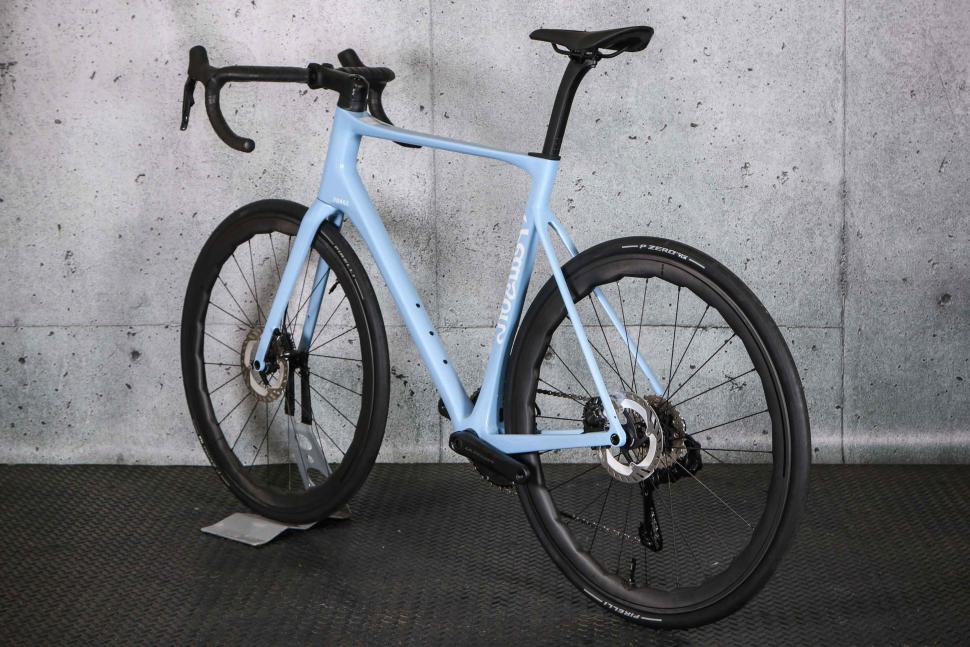
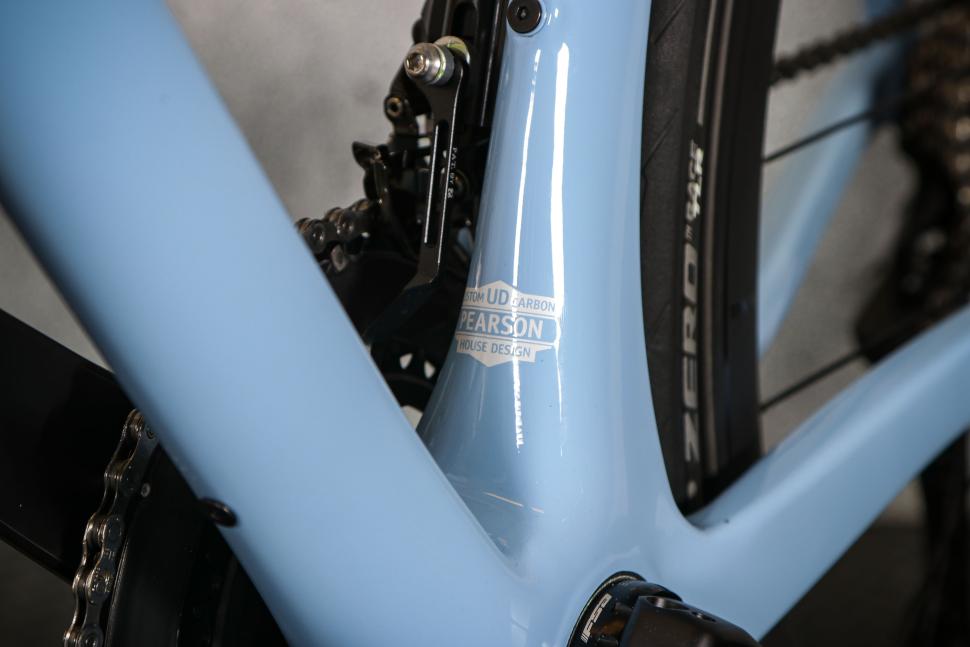
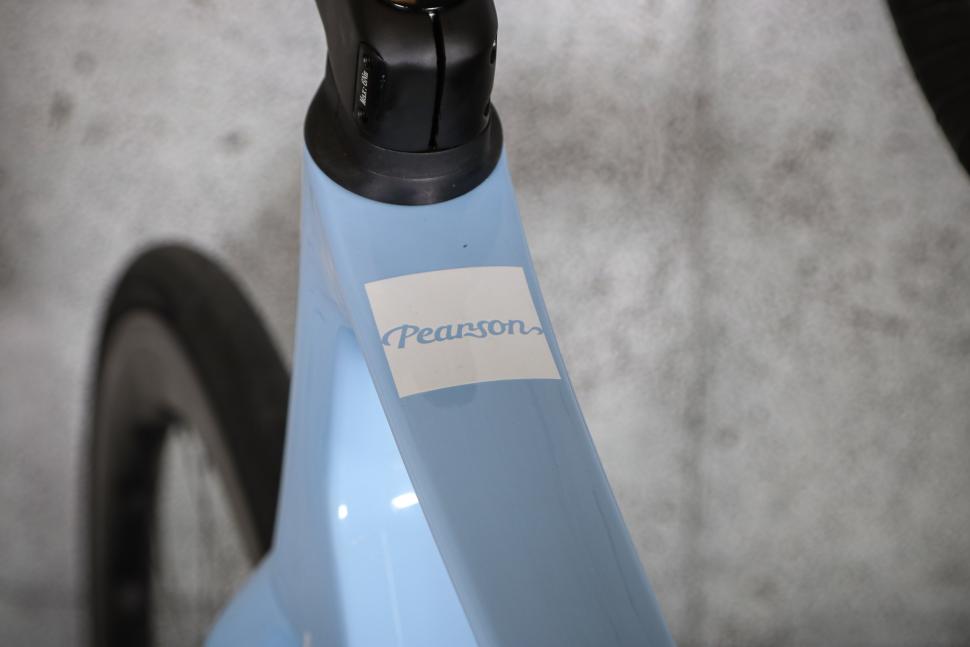
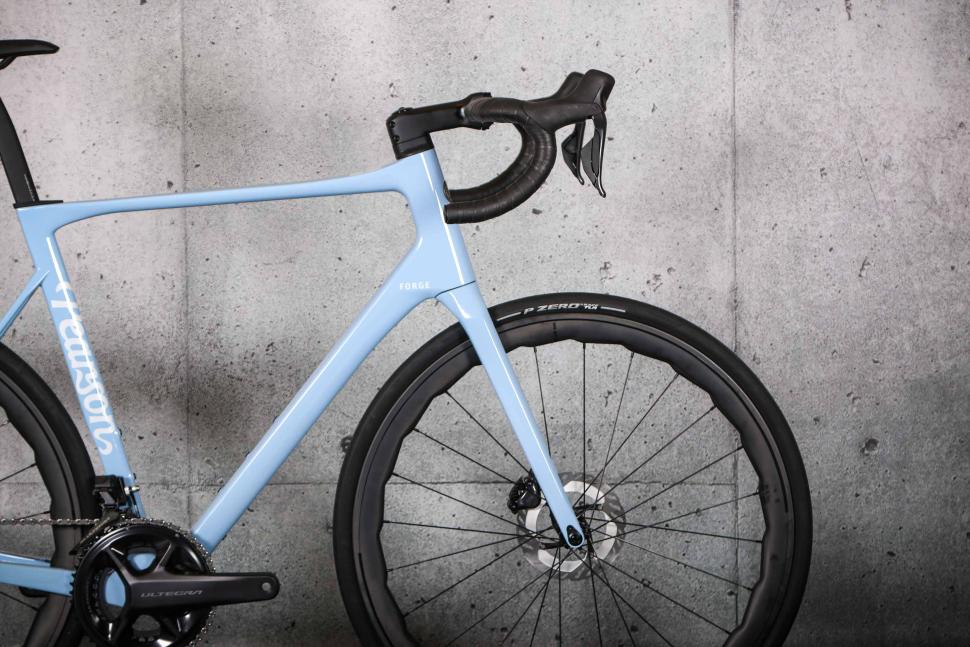
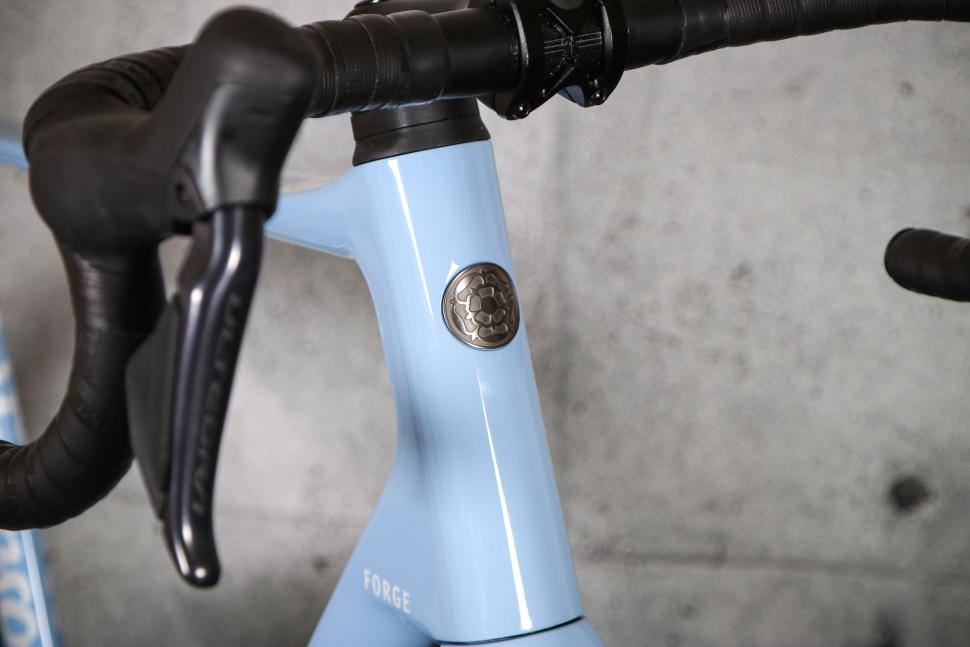
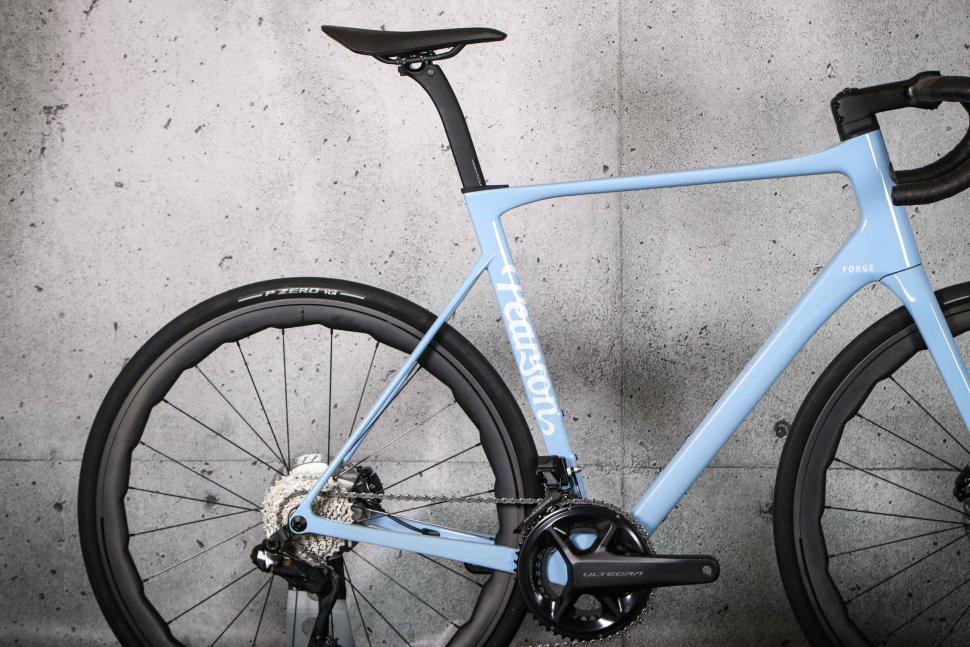


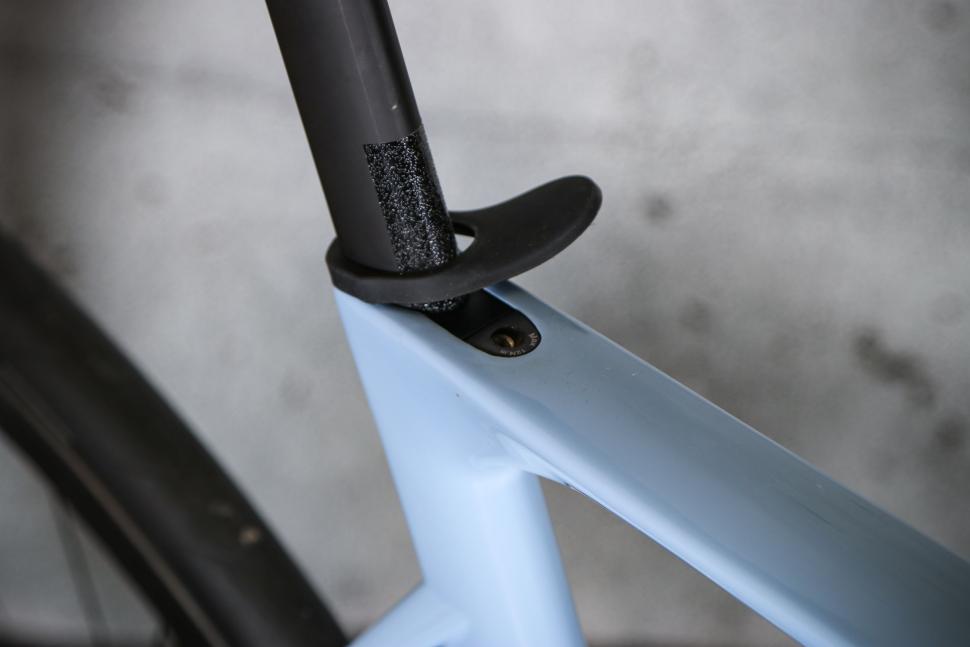

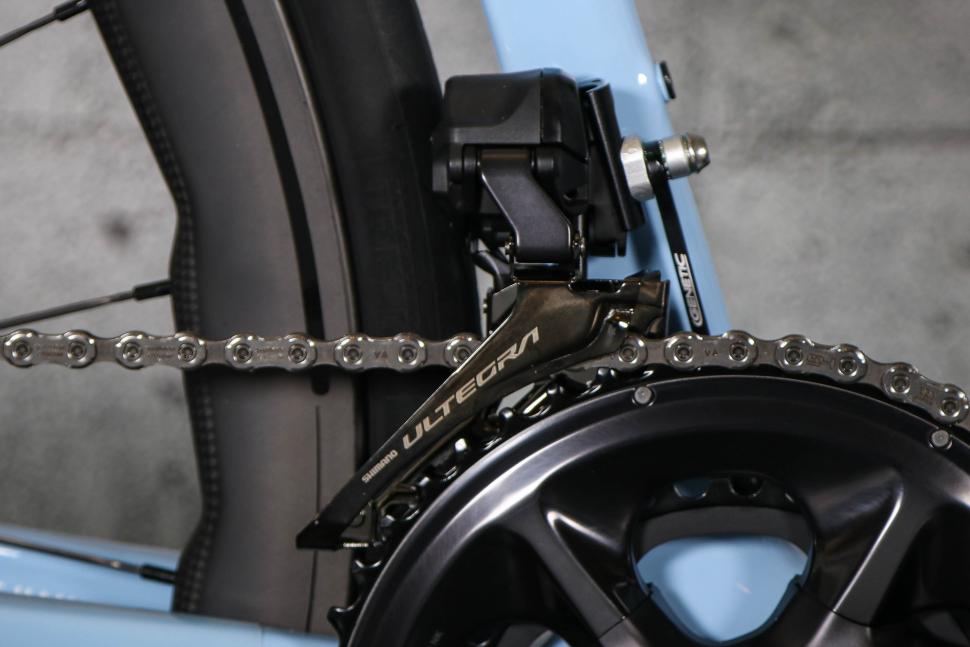
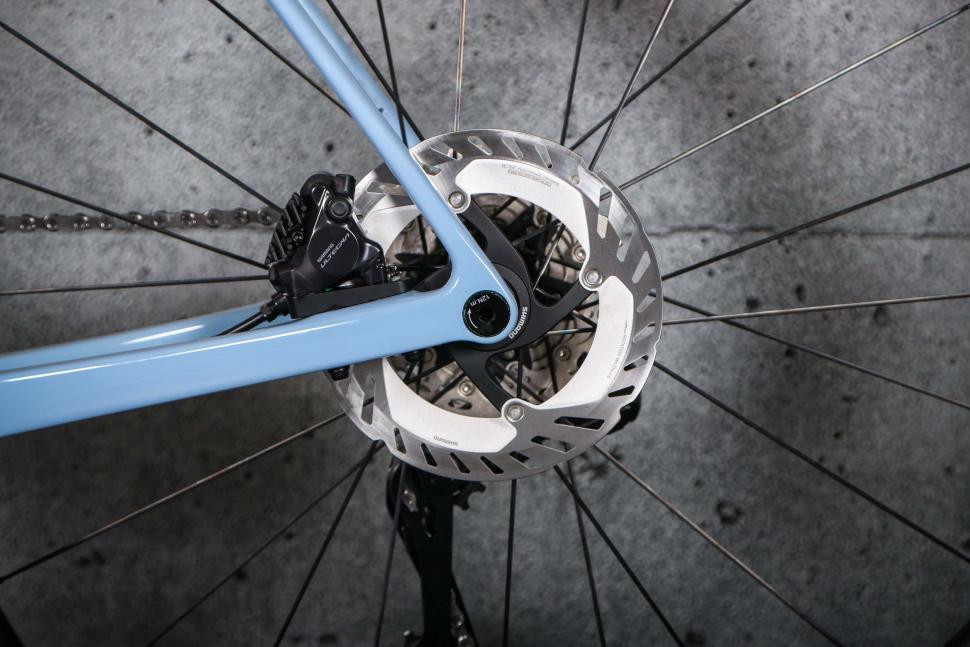
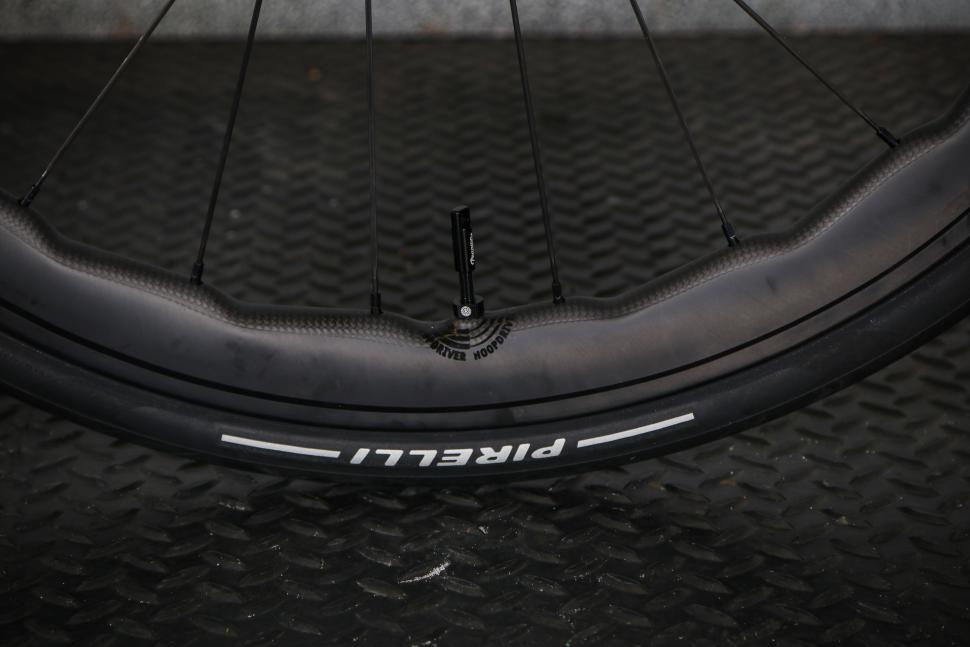
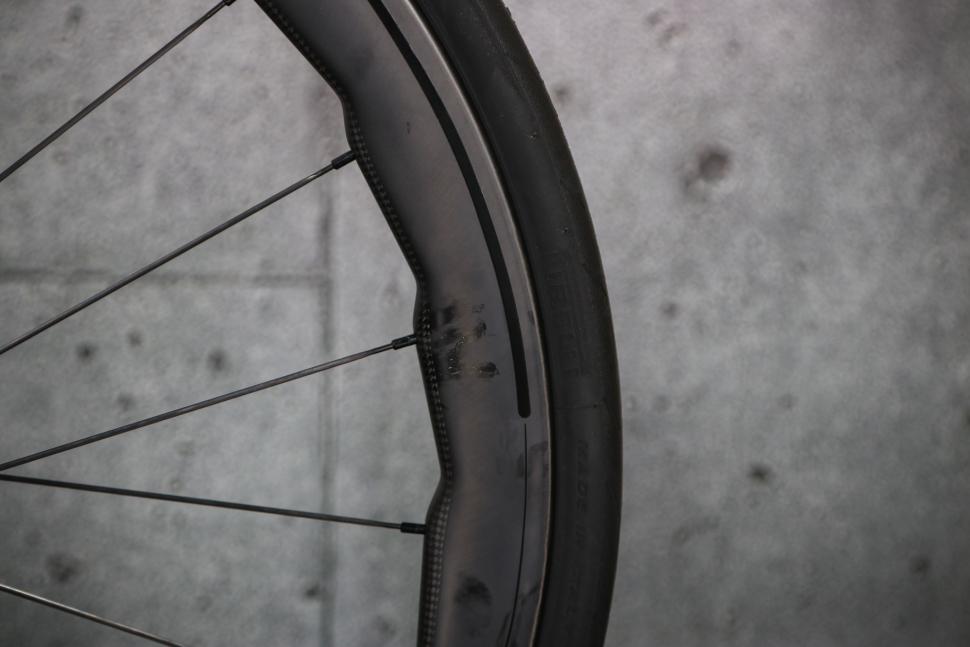
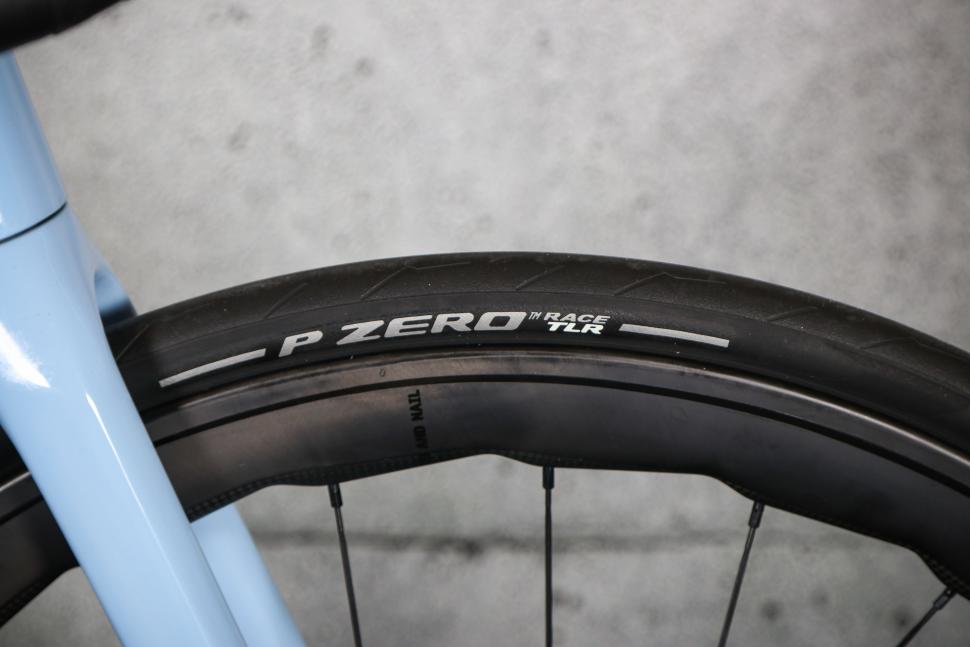
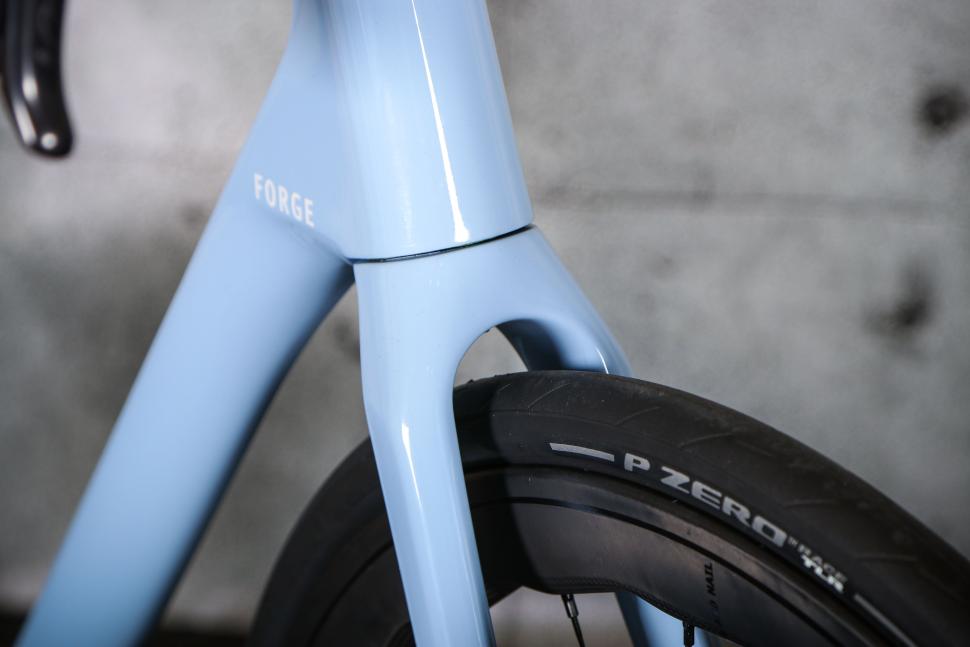

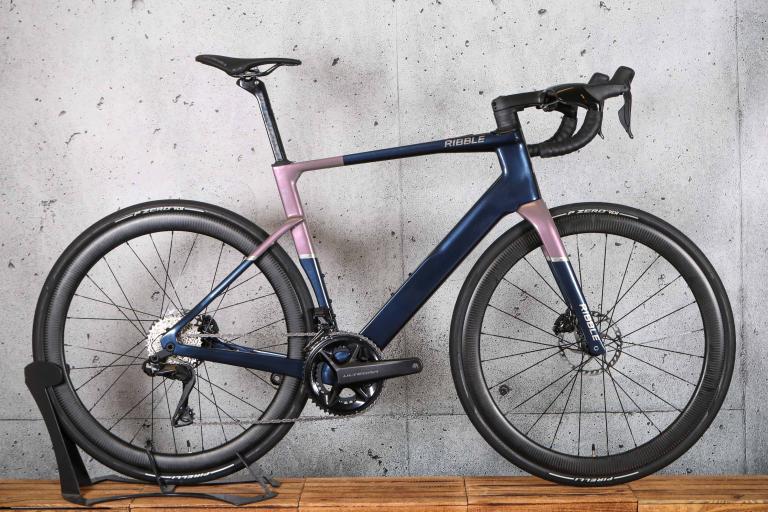
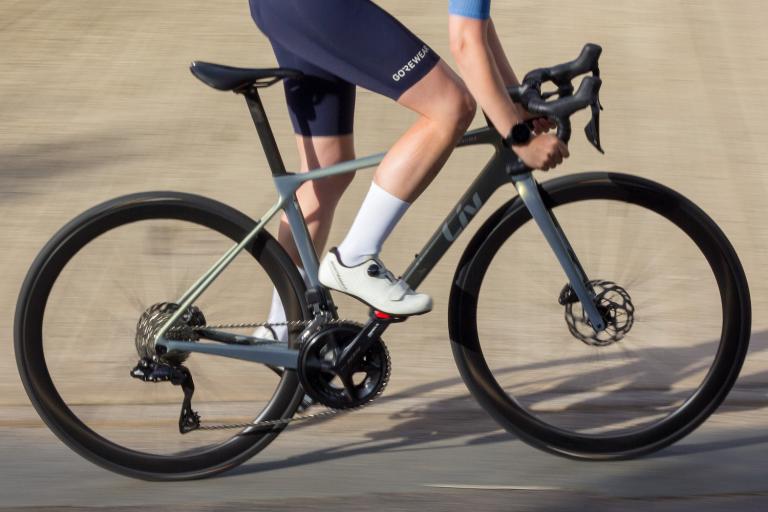
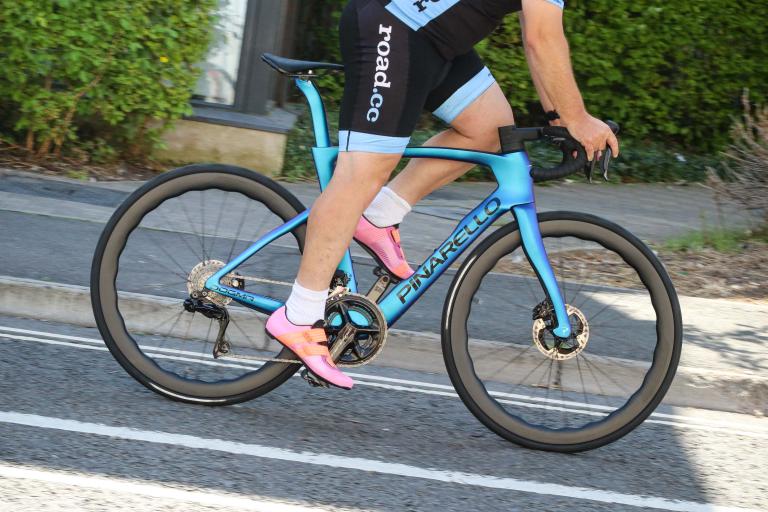
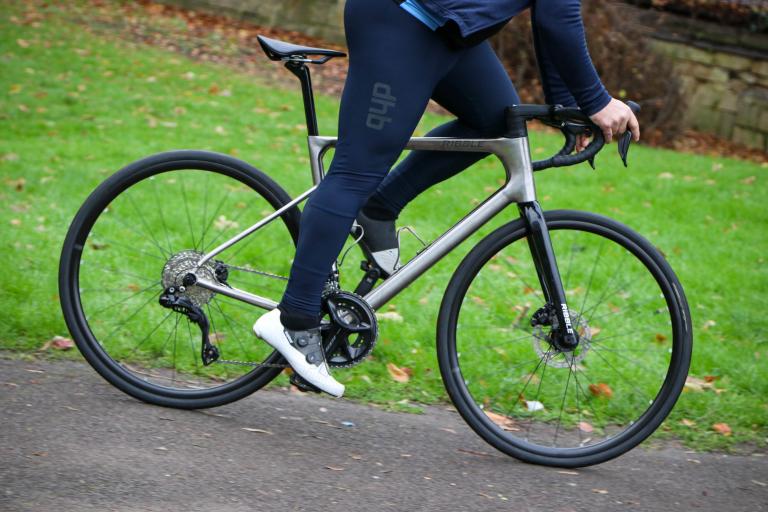
Add new comment
12 comments
This sounds a similar concept to a Cervelo Caledonia - any experiences on how they compare?
Not quite comparable. The Caledonia is a bit longer and lower. It's more of an all-road bike too while the Forge very much rides as a race bike. The Forge build is also custom, so crank length, handlebar width etc. If you're around London, I'd suggest heading to Pearson in East Sheen and taking a look. If not, there's plenty of background on the website.
Thanks for the response, the road focus is more of what I'm after so combined with the fit (I'm relatively local) It could be a winner. I can see you love yours from another comment 👍🏻
It fits beautifully and rides equally well (plus it's really confortable). I'd suggest going in and seeing the bike, having a chat with Nas and taking it from there.
Being 71 years old and no longer hard, I like the concept. But it's simply too much stack and not enough reach for me. Me arms is too long.
This! As we age, slammed stems and sprint oriented geometry is simply too harsh for most of us. I ride a Ritchey Logic which is similar in a sense to this bike. Comfort AND yet still somewhat of a race ride. Good for Pearson. Availabnle in the UDS? I doubt it but glad there's another choice as a slacker geometry in a 'serious' bike seems to be a thing of the past.
The geometry isn't simply slacker. Much of it conforms to race bike figures with only some - stack and reach mainly - catering to those not wanting an aggressive position.
This is a great approach by Pearson.
None of the bikes I've purchased in the last few decades have fitted me well - the stack and reach are always wrong for me and there hasn't really been an off the shelf alternative.
I wonder if this problem exists because bike design seems to be too weighted by inputs from racing teams / young designers and lacking in input from recreational cyclists / older designers that have the flexibility of the typical mid-life cyclist.
Ive heard that one of the UCI rules dictates that the bikes used in races has to be purchasable or made available to the public to purchase. So yes tonnes of input from the racers themselves go into the bikes.
I dont watch big races in general (not even F1...) so im not 100% clued up on all the rules but I heard the UCI rule being mentioned on a recent Cade Media bike fitting video with their bike fitter friend talking about the different types of bikes, the geometrys and rider fitment etc etc
Sure, but that doesn't mean that this specific use-case should dictate the bulk of sales. E.g. car manufacturers used to make "homologation specials" -limited run versions of cars with dramatically different spec which satisfied the "must be available to public" criterion while also giving them the base for a successful rally car. But they still made normal Ford Escorts too.
I've got one and it's a brilliant bike - a race bike that is forgiving on my body (that is no longer suited to aggressive geometry). It's a perfect fit too.
I've still not forgiven Pearson's for moving out of their original location.